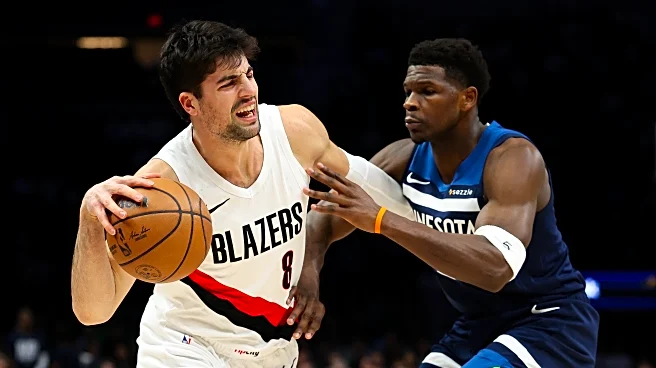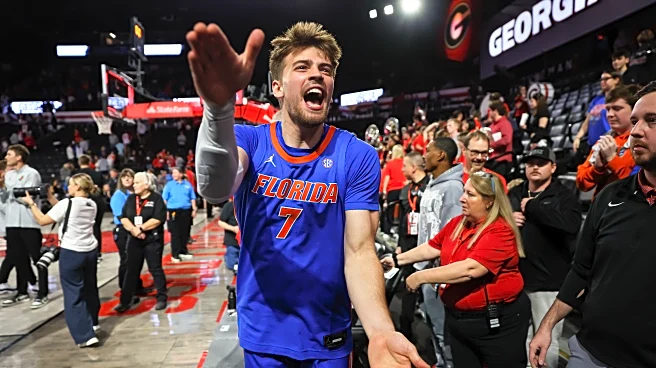What's Happening?
Barcelona forward Robert Lewandowski has expressed his intention to remain with the Catalan club through the winter transfer window. The 37-year-old Polish striker, who joined Barcelona in the summer of
2022, has decided to see out the current season with the team. Lewandowski has played in 11 matches across all competitions this season, scoring four goals. His current market value is estimated at €10 million, according to Transfermarkt. Despite speculation about his future, insider Fabrizio Romano suggests that Lewandowski is likely to leave Barcelona next summer when his contract expires.
Why It's Important?
Lewandowski's decision to stay with Barcelona through the winter transfer window is significant for the club as they rely on his experience and goal-scoring ability. His presence provides stability to the team's attacking lineup, which is crucial as Barcelona competes in various tournaments. The potential departure of Lewandowski next summer could impact Barcelona's strategic planning, as they may need to seek a replacement to maintain their competitive edge. Additionally, Lewandowski's market value and performance could influence his future prospects and the club's financial decisions.
What's Next?
As Lewandowski plans to remain with Barcelona for the current season, the club will likely focus on maximizing his contributions on the field. Meanwhile, discussions about his future beyond the summer may begin to surface, with potential suitors evaluating his performance and market value. Barcelona may also start considering options for strengthening their squad in anticipation of Lewandowski's departure. The club's management will need to strategize on how to fill the void left by the experienced striker and maintain their competitive stature in European football.
Beyond the Headlines
Lewandowski's decision to stay with Barcelona highlights the complexities of player contracts and transfer negotiations in professional football. It underscores the importance of strategic planning for clubs as they navigate player retention and acquisition. The situation also reflects the broader dynamics of the football transfer market, where player movements can significantly impact team performance and financial stability. As clubs balance short-term goals with long-term strategies, Lewandowski's case serves as a reminder of the intricate nature of managing top-tier football talent.











